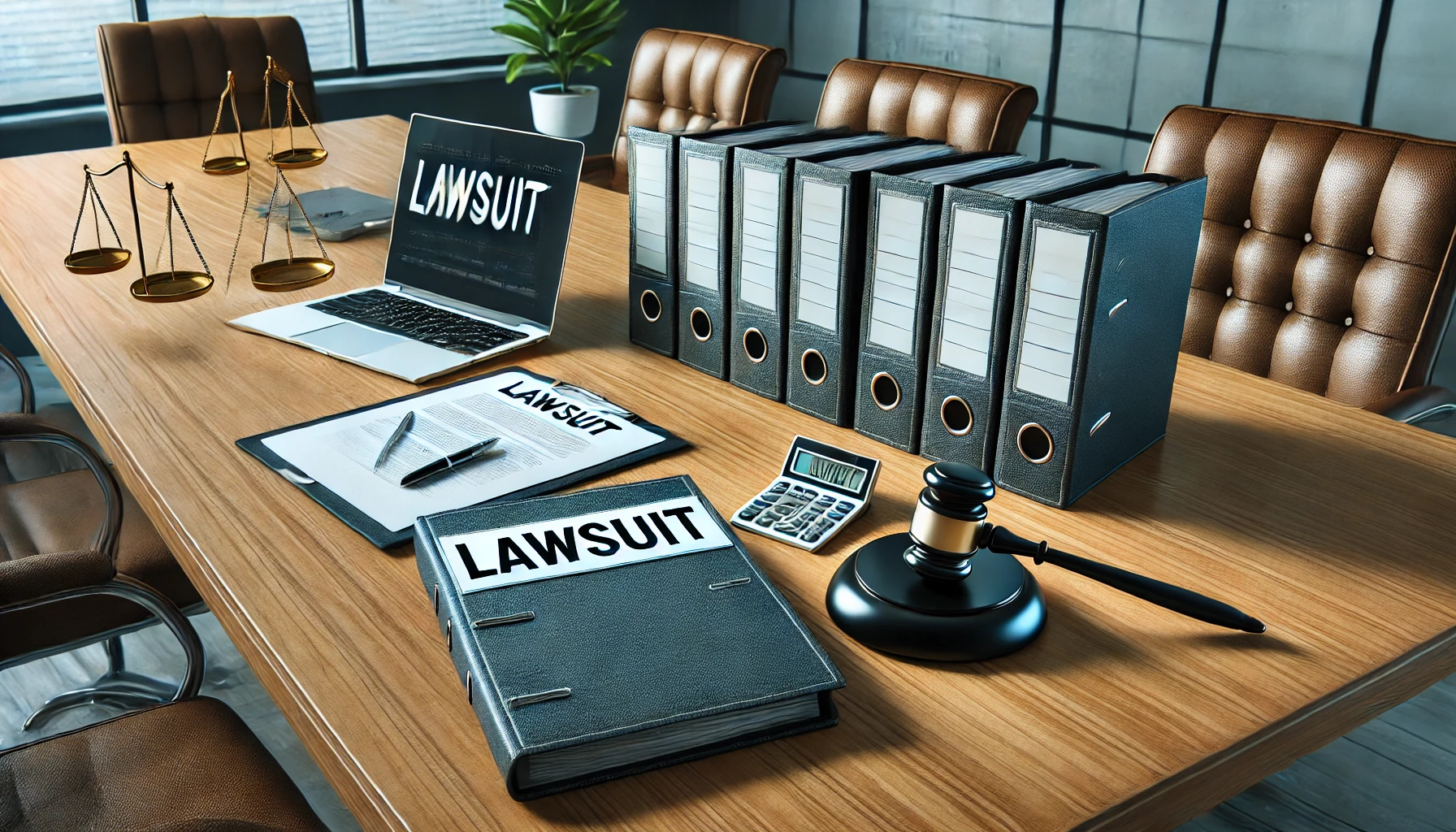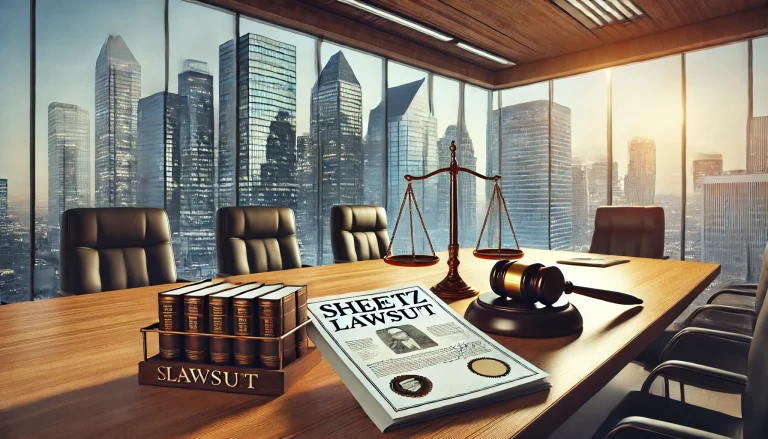The Sheetz lawsuit background checks controversy involves a case filed by the U.S. Equal Employment Opportunity Commission (EEOC) in April 2024. The lawsuit highlights Sheetz’s practice of conducting criminal background checks during the hiring process. According to the EEOC, these practices have a discriminatory impact on certain racial groups, including Black, Native American/Alaska Native, and multiracial applicants, violating federal anti-discrimination laws.
Table of Contents
ToggleKey Allegations Against Sheetz
The central issue of the lawsuit is the EEOC’s allegation that Sheetz’s criminal background check policy disproportionately excludes applicants from certain racial groups. The EEOC argues that the company’s hiring practice has a disparate impact, meaning that it negatively affects Black, Native American, and multiracial applicants more than others.
According to the EEOC, although Sheetz’s policy was not intentionally designed to discriminate, the outcome of the policy results in unfair exclusions based on race. This, the EEOC claims, violates Title VII of the Civil Rights Act of 1964, which prohibits employment discrimination based on race, color, religion, sex, and national origin.
Sheetz Lawsuit Background Checks: The Impact on Employment Practices and Legal Compliance
The Sheetz lawsuit background checks case has drawn attention to the potential consequences for employers who rely on criminal background checks as part of their hiring process. Filed by the U.S. Equal Employment Opportunity Commission (EEOC) in April 2024, the lawsuit claims that Sheetz’s policy of automatically disqualifying applicants with criminal records disproportionately affects certain racial groups, including Black, Native American, and multiracial candidates.
The EEOC argues that the policy violates Title VII of the Civil Rights Act of 1964, which prohibits discrimination in employment practices based on race, color, religion, sex, or national origin. The lawsuit centers on the idea that Sheetz’s use of a blanket criminal background check policy creates a disparate impact on minority groups, even if unintentional. According to the EEOC, Sheetz failed to show that such a policy is necessary for the specific roles they are hiring for and that it disproportionately harms certain protected groups without a business necessity justification.
For businesses, this case serves as an important reminder to evaluate their own hiring practices. Companies must ensure that background checks are applied in a way that is fair and relevant to the job at hand, rather than being overly broad. Employers are advised to move away from automatic disqualifications based solely on criminal history, and instead, consider each applicant’s individual circumstances, such as the nature of the offense and its relevance to the position.
Details of Sheetz’s Hiring Policy
Sheetz’s policy involves conducting criminal background checks on all job applicants. Those who have criminal convictions are generally disqualified from being hired, regardless of how long ago the conviction occurred or whether it is relevant to the job being applied for. The EEOC claims that this blanket policy fails to consider whether the applicant’s criminal history is directly related to the job they are seeking.
The EEOC asserts that the policy is overly broad and not tailored to the specific job requirements. Instead of assessing each applicant’s criminal history on a case-by-case basis, Sheetz disqualifies applicants simply because of a past conviction, regardless of its relevance to the role. This, according to the EEOC, is unfair and discriminatory.
The Legal Perspective of the EEOC
The EEOC’s lawsuit is based on the disparate impact theory of discrimination, which applies when an employer’s policy or practice, although neutral on its face, disproportionately affects a certain group. In this case, the EEOC argues that Sheetz’s background check policy disproportionately affects minority applicants.
Under Title VII of the Civil Rights Act, employers must prove that their hiring policies are necessary for the job and that they are consistent with business needs. The EEOC believes that Sheetz has not justified the need for such an exclusionary policy, particularly when there are alternatives available. For example, the EEOC suggests that Sheetz could consider the nature of the conviction and how long ago it occurred before disqualifying an applicant, rather than applying a blanket policy.
Sheetz’s Response to the Lawsuit
In response to the EEOC’s claims, Sheetz has denied that its practices are discriminatory. The company asserts that it values diversity and inclusion in its hiring process and that the goal of background checks is to ensure workplace safety and the security of the business. Sheetz also expressed its intention to defend its policies in court, emphasizing that its hiring practices are not intentionally discriminatory.
However, Sheetz’s response highlights a broader issue: while the company may not have intended to discriminate, its policies may still have a discriminatory effect, which is the key argument the EEOC is making in the lawsuit.
Implications for Employers
The Sheetz lawsuit serves as an important reminder for businesses across the country to ensure that their hiring policies, particularly those related to criminal background checks, comply with federal anti-discrimination laws. Here are a few key takeaways for employers:
Avoid blanket policies
Employers should ensure that their hiring practices do not unnecessarily exclude qualified candidates based on factors that are not relevant to the job. For example, blanket criminal background checks can disproportionately impact certain racial groups, leading to legal challenges.
Consider job relevance
Employers should evaluate whether a criminal conviction is directly related to the role an applicant is applying for. For many jobs, especially those that don’t involve handling sensitive information or working with vulnerable populations, a past criminal conviction may not be relevant.
Use individualized assessments
Instead of automatically disqualifying candidates with criminal records, employers can consider assessing each applicant individually. This can involve looking at factors like the type of crime, when it occurred, and whether it would impact the applicant’s ability to perform the job.
Ensure fairness and compliance
Employers should regularly review their hiring policies to ensure that they comply with anti-discrimination laws and provide fair opportunities for all applicants, regardless of their background.
Legal and Social Context
The Sheetz lawsuit is part of a larger push for fair hiring practices in the U.S. In recent years, there has been growing recognition of the need to give individuals with criminal histories a second chance at employment. This is especially important for people from marginalized communities who are often disproportionately affected by criminal convictions.
Many advocacy groups and government agencies, including the EEOC, have pushed for reforms that limit the use of criminal background checks in hiring decisions. These reforms aim to create more inclusive workplaces and help reduce recidivism by providing individuals with opportunities to rebuild their lives after serving time.
At the same time, businesses must balance these goals with the need to maintain a safe and secure workplace. Employers are encouraged to develop fair policies that consider both the needs of their business and the rights of job applicants.
Potential Consequences for Sheetz
If Sheetz is found liable for violating anti-discrimination laws, the company could face several consequences:
- Financial penalties: Sheetz may have to pay fines or settle with the EEOC.
- Reputation damage: Negative publicity from a discrimination lawsuit could hurt Sheetz’s reputation and customer trust.
- Policy changes: Sheetz may be required to revise its hiring practices to comply with anti-discrimination laws, including adjusting its use of criminal background checks.
This case could also set a precedent for other employers, encouraging them to rethink their hiring practices and make changes to ensure they are fair and non-discriminatory.
Lessons for Employers
The Sheetz lawsuit offers several important lessons for businesses:
- Review hiring policies regularly: Employers should regularly audit their recruitment and hiring processes to ensure that they do not inadvertently discriminate against any group.
- Avoid automatic disqualifications: Rather than using blanket policies, employers should assess each applicant individually, considering whether a criminal record is relevant to the position.
- Be proactive in preventing discrimination: Employers should educate themselves on federal and state anti-discrimination laws and strive to create inclusive workplaces that provide opportunities for all individuals.
Conclusion
The Sheetz lawsuit background checks case serves as a crucial reminder for businesses to carefully evaluate their hiring practices, particularly those involving criminal background checks. While it is essential for employers to prioritize workplace safety and security, they must also ensure their policies do not unintentionally discriminate against certain groups of applicants.
As this case unfolds, it will be vital for businesses to monitor its outcome and any potential shifts in legal guidelines. By adopting fairer, more inclusive hiring policies, companies can not only comply with anti-discrimination laws but also foster a more equitable and diverse job market that benefits all candidates.
FAQs on Sheetz Lawsuit on Background Checks
What is the Sheetz lawsuit about?
The EEOC filed a lawsuit alleging that Sheetz’s criminal background check policy discriminates against Black, Native American, and multiracial applicants.
Why does the EEOC say Sheetz’s policy is discriminatory?
The policy disproportionately excludes certain racial groups, violating Title VII of the Civil Rights Act, even if unintended.
How does Sheetz justify its background checks?
Sheetz claims the checks ensure workplace safety and operational integrity while denying any intent to discriminate.
What is the potential impact of the lawsuit on Sheetz?
Sheetz could face financial penalties, policy revisions, and reputational damage if the EEOC’s claims are upheld.
What can other employers learn from this case?
Employers should tailor hiring practices to specific job needs, avoid blanket policies, and ensure compliance with anti-discrimination laws.
Article Recommendations
Wendys Lawsuit Michigan: What the Case Reveals About Corporate Accountability in the Food Industry
Third Culture Bakery Lawsuit: How Public Opinion Influences Intellectual Property Decisions
Abilene Asbestos Legal Question: How to Identify, Handle, and Seek Justice for Asbestos Exposure




